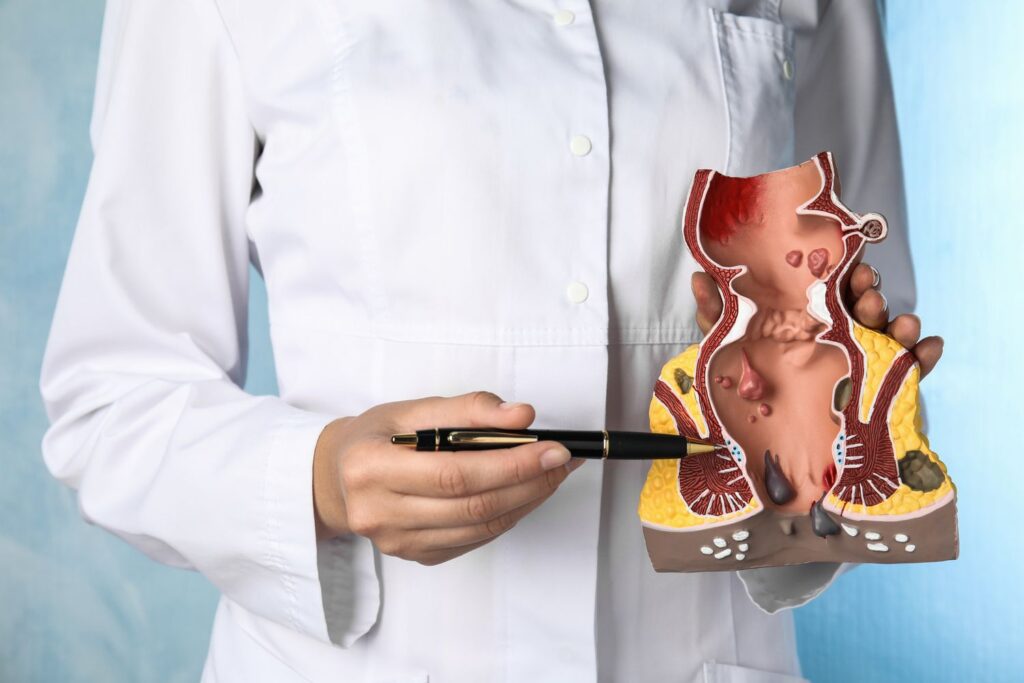Fissures, often a painful and uncomfortable condition, can disrupt daily life and cause significant distress. Fortunately, there are effective ways to achieve a permanent cure for fissures.
In this comprehensive guide, we will delve into this common problem, explore the causes, symptoms, and risk factors, and provide a step-by-step approach to attaining lasting relief.

Introduction: How to Achieve a Permanent Cure for Fissures?
Knowing detail about Anal Fissures
Anal fissures are little tears or cuts in the covering of the rear-end. They often result from the passage of hard or large stools and can cause severe pain during bowel movements. Understanding this condition is the first step toward finding a permanent solution.
Causes of Anal Fissures
Several factors can lead to the development of anal fissures. These include:
- Constipation:
Straining during bowel movements due to constipation can lead to fissures.
- Diarrhoea:
Chronic diarrhoea can also irritate the anal area and cause fissures.
- Childbirth:
In some cases, women may develop fissures after childbirth.
- Anal Sex:
Engaging in anal sex without proper lubrication can increase the risk.
- Inflammatory Bowel Disease:
Conditions like Crohn’s disease can make individuals more susceptible to fissures.
Symptoms and Diagnosis
Recognizing the symptoms of anal fissures is crucial for seeking appropriate treatment. Common symptoms include:
- Pain during bowel movements:
A sharp, burning pain that can last for hours.
- Bleeding:
Bright red blood on toilet paper or in the stool.
- Itching and discomfort:
Persistent irritation in the anal area.
Diagnosis usually involves a physical examination and a discussion of your medical history.
Risk Factors
Certain factors can increase the risk of developing anal fissures:
- Age:
They are more common in young adults and infants.
- Lack of fiber:
A diet low in fiber can lead to constipation, increasing the risk.
- Chronic diarrhoea:
Frequent episodes of diarrhoea can also irritate the anal area. - Anal intercourse:
Unprotected or rough anal sex can lead to fissures. - Existing bowel conditions:
Conditions like irritable bowel syndrome can make fissures more likely.
Conservative Treatment Methods
By and large, butt-centric crevices can be dealt with actually without medical procedure. Here are some moderate treatment choices:
Diet and Lifestyle Changes
A high-fiber diet with plenty of water can soften the stool and make bowel movements less painful. This can promote healing and prevent future fissures.
Topical Creams and Ointments
Over-the-counter creams containing anaesthetics or nitroglycerin can help relieve pain and promote healing.
Sitz Baths
Soaking in warm water for about 15-20 minutes, known as a sitz bath, can provide relief and promote healing.
Medications
In some cases, medications that relax the anal sphincter may be prescribed to reduce pain and aid healing.
Surgical Options
If conservative methods fail, surgical intervention may be necessary. There are several surgical options for treating anal fissures, including:
Sphincterotomy
This procedure involves cutting a small part of the anal sphincter to relax it, allowing the fissure to heal.
Fissurectomy
A fissurectomy is the removal of the fissure itself, which can promote healing.
Botox Injections
Botulinum toxin injections can help relax the anal sphincter temporarily, allowing the fissure to heal.
Permanent Cure – Is It Possible? How to Achieve a Permanent Cure for Fissures?
While most anal fissures can be treated successfully with conservative methods and surgery, achieving a permanent cure depends on various factors. Prevention is crucial, and maintaining a high-fibre diet, staying hydrated, and avoiding constipation are key. For some, a permanent cure may mean lifestyle adjustments and vigilance in managing underlying conditions.
Consult lady’s Specalist DR.P.Padma kiran
Lady Piles Doctor and Laser Proctologist – She has vast experience in her field having worked in India & abroad for over 15 years. A graduate of Guntur Medical College & a post graduate Andhra Medical College. She moved to UK to provide highest standard of Clinical Care in Medical and Surgical. She achieved Membership of Royal College England & did Diploma in Coloproctology & Trained in the application of the Lasers.
call now: +91-9290660072
Conclusion
In conclusion, anal fissures can be painful and disruptive, but a permanent cure is achievable with the right approach. Understanding the causes, recognizing the symptoms, and seeking timely treatment can significantly improve your quality of life. Whether through conservative methods or surgical intervention, lasting relief is within reach.
